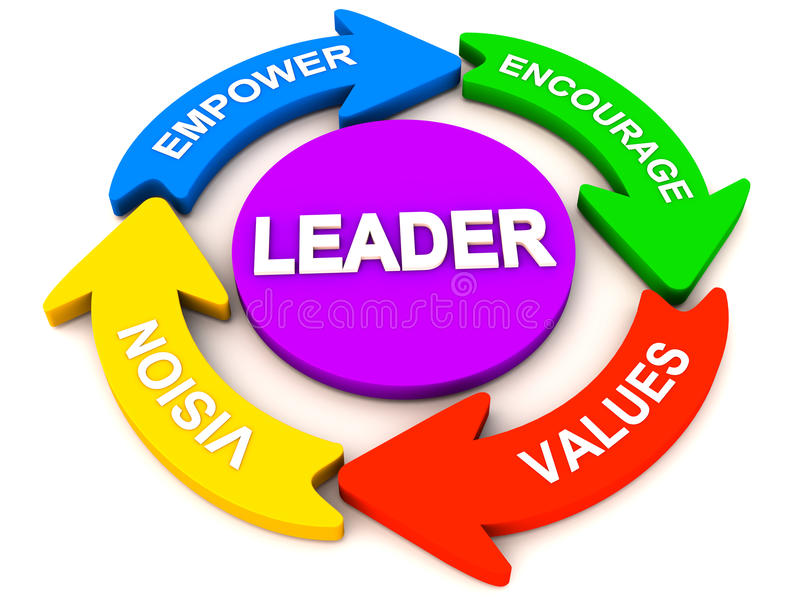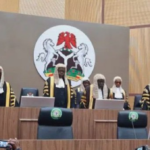What we call leadership may be difficult to define, especially given everything we have been through being who we are and where we come from and what we hope to become after 2023, one concept that is commonly seen in its shadows is influence. While the field of leadership has empirically identified several outcomes associated with mainstream influence, such as greater organisational performance, higher subordinate satisfaction and higher subordinate engagement, little is known about influence in youth leaders.
One may however be stuck trying to understand the sublime intricacies of leadership in the local context given the many, many blurred lines – where any sort of demarcation between function and responsibility exists, that is. This is especially so after the 2023 elections and the phenomenal perpetuation of the APC at the national level.
Objective analyses suggest that most young people of this country do not experience influence by using it to accomplish productive tasks, and to set a constructive example for others to follow, but by gaining undue personal advantages. The subsidy scandal that sealed Hon. Farouk Lawan’s doom is a case in point… we saw a number of princelings with access to the levers of power exposed, but what was really exposed was what they used the power they had access to for.
It is clear that leaders can influence in both positive and negative ways, it is also clear that wielding influence must also feel good and if the looming addiction that comes with this psychological titillation is allowed to fester, toh! It is naïve to assume that today’s young leaders will lead in the same ways as the generation prior if they do not have the same breathing space this past leadership also had.
Even with the overwhelming need for youth to develop leadership skills and imbibe civil ethics, almost no time is spent by those concerned to consciously examine possible avenues of increasing the wealth of ideas and or strengthening informal social management structures that enhance leadership skills. All effective youth programmes must have youth development at their core. The incoming administration seems to have good credentials on that.
Effective youth leadership programmes build on solid youth development principles with an emphasis on those areas of development and programme components that support youth leadership. While many half-hearted youth leadership programmes currently exist, one does not need an expert to see that they are not effective at raising leaders who are leaders in the absolute sense of the word. Exhibits A all the way to Z are bare in all our faces from the 744 LGAs, 36 states, the National Assembly and the other place.
No time needs to be spent studying indicators or indices in the context of physical accomplishments; you just need to be alive, and have at least one eye or a modicum of intelligence to see this. That is, the laws of our own leadership if there is such a thing, or the very foundation of the society we live in are defective and must be amended if we are to get out of this vicious interregnum of responsible leadership is concerned.
One over-flogged challenge young leaders face is the lack of opportunities to officially hold a role of authority and lead. Because youth are often seen through a lens of being too young to lead tasks, their opportunities for adult-style leadership are limited. Instead, they are forced to look for alternative methods to demonstrate their leadership ability. Young people then learn to exert whatever influence they manage to accumulate in ways that procure personal benefits that are not only selfish but inimical to the welfare of society.
Little time has been invested in change development and managing its effects on youth leaders themselves. Without better understanding youth leadership through the eyes of young leaders participating in important leadership and ethics training programmes, improvements cannot be made, and the half-hearted programmes that are online even less effective at producing great outcomes and furthering the personal development of youth leaders.
Youth influence is not a new phenomenon – but it is, or it will be in Nigeria. However, the term more often elicits a negative connotation as alluded in the foregoing such as drug habits, violence and other social vices that further damage both the individuals involved as well as the general society.
By better understanding how youth leaders use their influence, better programmes can be created to foster their development. Developing programmes for the youth that focus on fostering relationships and building upon their strengths is an approach that must be increasingly considered.
When young people lack the experience and authoritative power of traditional adult leaders, they are likely to construct a different definition of leadership for themselves. In most frames of reference, people are granted authority to direct or influence others, meaning they do not necessarily have to rely on the creative solutions they may have turned to as young people. Obviously, this could potentially limit possibilities for finding creative solutions to problems and therefore mar someone’s or an entity’s success. This happens to be just one of the many reasons the “young and the restless” can bring valuable fresh ideas, perspectives and solutions to leadership roles when given the chance.
A great hindrance or note of uncertainty that young people face in Nigeria in their attempt to gain experience in the leadership arena is the silo they are confined to – the one that confines them to the leadership of a tomorrow that never seems to come. Dan-Anache, the Hausa country songster aptly defined “tomorrow” as an event that is not only consistently punctual but always within an arm’s reach. For youth in Nigeria and many other places, tomorrow is a hollow sound that has rung in their ears with no material substance, only promises that are redeemed by excuses after excuses.
This in fact is what has denied young people on both sides of the Niger a voice in Nigeria’s issues. They keep waiting for a tomorrow that is being paid for by yet another dud cheque – I wonder where the EFCC has been all this while!
With the “Independence” generation all but depleted and the “post-Independence” successors also approaching their “best-before” date… the leadership of tomorrow is now today, and that too will have to be reviewed, by nature itself if need be. And nobody wants that.
Jagaba beware!




